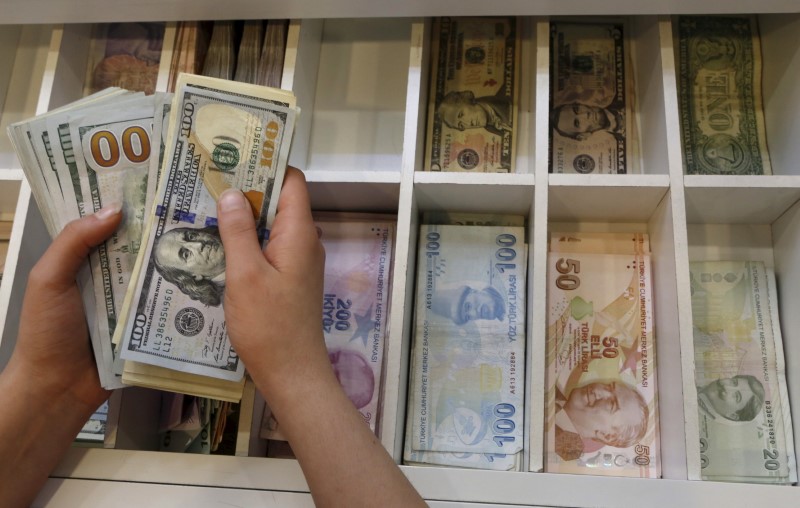Trump meets Zelenskiy, says Putin wants war to end, mulls trilateral talks
(Bloomberg) -- Turkey made it more difficult for foreign investors to bet against the lira by further restricting their access to liquidity, driving up offshore borrowing costs.
Local banks’ outstanding currency swaps with counterparts abroad shouldn’t exceed 10% of their equity, down from 25% previously, the banking regulator said on Sunday. The restriction drove the overnight rate to over 60% on Monday, and the lira edged stronger against the dollar after buckling past a key level last week.
At times of lira distress, authorities have used the swap market to dramatically increase the rate that foreign investors have to pay to borrow liras, making it prohibitively expensive for them to short the currency. The latest restrictions come amid an aggressive easing cycle from the central bank that has pushed domestic borrowing costs below inflation, making it unattractive to hold the local currency.
On Friday, the lira weakened past the 6-per-dollar mark, a level state banks have been defending all month by flooding the market with dollars. According to four traders with knowledge of the matter, government-backed lenders sold more than $4 billion last week, with the scale of the intervention picking up dramatically late on Friday after a better-than-expected U.S. jobs report lifted the greenback against its major peers.
Turkey first imposed limits on the swap market during the currency crisis in 2018. In the run-up to local elections in March 2019, a similar directive helped push the overnight rate past 1,000%, burning short sellers.
The lira was trading 0.3% stronger at 5.9994 per dollar as of 12:53 p.m. in Istanbul, near an eight-month low.
